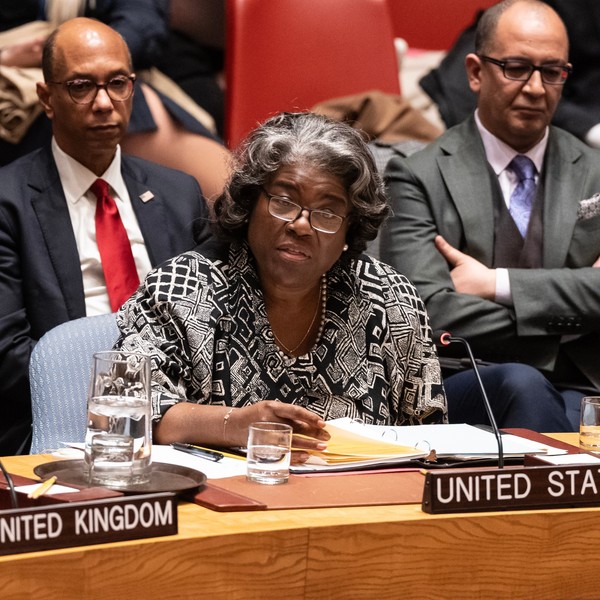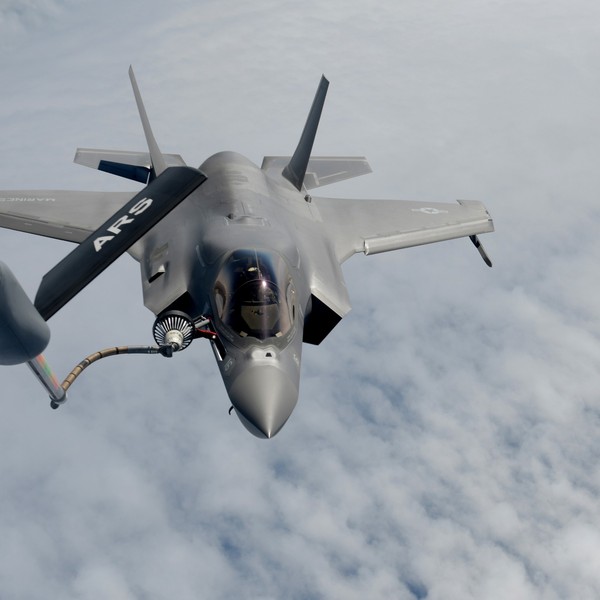On Monday, Reps. Pramila Jayapal and Peter DeFazio announced that they will be introducing a new Yemen War Powers Resolution. This is a direly needed step to put an end to America’s ongoing complicity in the worst humanitarian crisis in the world once and for all.
Last week marked the one-year anniversary of President Biden’s inaugural foreign policy speech, in which he announced that his administration would follow through on his campaign promise and end U.S. support for the Saudi-led coalition’s “offensive” operations in Yemen.
Among advocates like myself who have long urged the United States to end its involvement in the war, high expectations for a serious shift in the U.S. policy towards Yemen and Saudi Arabia quickly turned into disappointment. Now, with continued U.S. support, the Saudi-led coalition is carrying out a major escalation in its brutal air campaign, making January one of the bloodiest months in the history of the war. Recent airstrikes targeting a detention center and vital communications infrastructure killed at least 90 civilians and triggered nationwide internet blackout.
The United States has for years enabled these vicious attacks against civilians, and it’s past time for Congress to end U.S. complicity in these atrocities by passing a War Powers Resolution.
Following Biden’s announced policy change last year, we expected to see robust limitations on weapons sales and military support to Saudi Arabia. Unfortunately, the president’s announcement amounted to nothing but a public relations stunt that gave the appearance of change while obscuring the fact that U.S. policy hasn’t meaningfully altered.
The administration never defined the distinctions between “offensive” and “defensive” support and proceeded to approve over a billion dollars in weapons sales to Saudi Arabia, including new attack helicopters, air-to-air missiles, and defense contracts. The Pentagon also acknowledged that the United States is still providing spare parts, maintenance, and logistical support for Saudi warplanes conducting operations in Yemeni territory.
Unsurprisingly, Biden’s strategy failed to induce changes in Saudi behavior. Saudi Arabia’s latest onslaught of airstrikes is just the most recent escalation in a brutal conflict that has ground on for almost seven years and sparked one of the most severe humanitarian crises on Earth. In 2021, Saudi Arabia launched roughly as many airstrikes as it did in 2020. Rather than de-escalate the conflict and engage in good-faith diplomacy, Saudi Arabia has doubled down on its collective punishment of Yemenis through airstrikes and strengthening its suffocating blockade, which the World Food Program warned last year was restricting access to vital commodities and setting the stage for the worst famine in modern history.
In recent years, Congress has repeatedly made its opposition to U.S. involvement in the Yemen war clear. In 2019 Congress made history by passing a War Powers Resolution to end U.S. military involvement in the Saudi-led coalition’s war in Yemen. But after Trump’s veto, Yemen suffered a breakdown in diplomacy, an uptick in violence and a continuation of hostilities.
More recently, in response to the worsening humanitarian conditions in Yemen, a bipartisan group of over 100 members of Congress issued several forceful statements, calling on the Biden administration to take urgent action to end Saudi Arabia’s blockade, including by leveraging U.S. military aid. In September, the House of Representatives passed an amendment to the National Defense Authorization Act to prohibit U.S. involvement in the war. But for the third time in three years, the provision was stripped out of the final bill during closed-door conference negotiations and military support continued.
While the United States can’t unilaterally bring about a ceasefire, it must use its leverage to try to persuade Saudi Arabia to lift its blockade and end airstrikes targeting civilians and civilian infrastructure.
After a year of President Biden’s failed Yemen policy and repeated rebuffs of congressional attempts to course correct, lawmakers are left with two options: turn a blind eye to craven U.S. complicity, or pass a Yemen War Powers Resolution that finally ends U.S. support for the Saudi-led coalition. With the midterms and an escalating humanitarian crisis looming, time is of the essence. By forcing more votes to prohibit unauthorized military support, Congress can do its part to pressure the warring parties to sit at the bargaining table and help bring this devastating war to an end.















